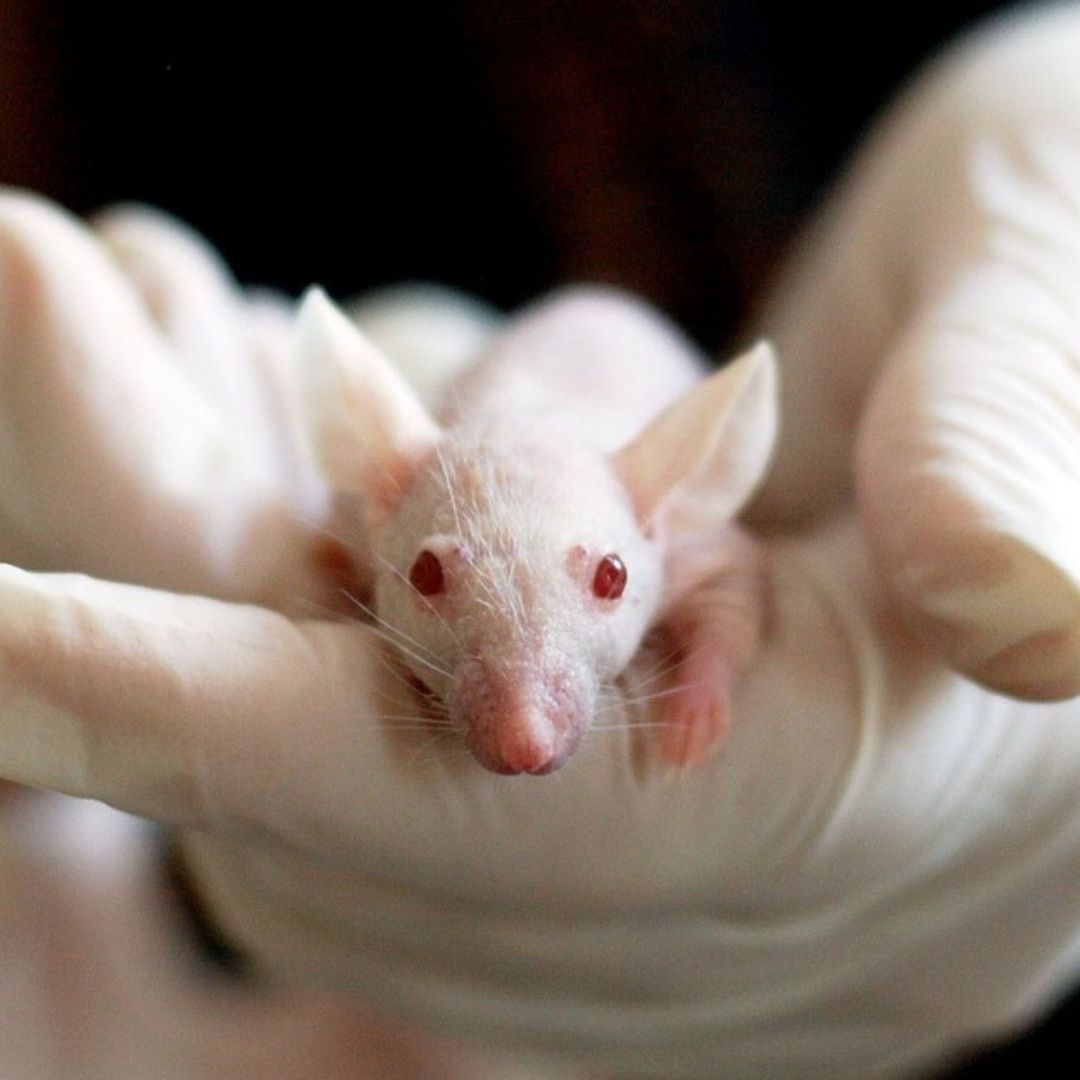
Image Credits: Pixabay
Switzerland To Vote For Banning Animal Testing, Researchers Fear Could Hamper Medical Research
Writer: Tashafi Nazir
For most people, journalism sounds hectic and chaotic. For her, it's a passion she has been chasing for years. With an extensive media background, Tashafi believes in putting efforts on presenting a simple incident in the most interesting way.
Others/World, 12 Feb 2022 6:21 AM GMT
Editor : Snehadri Sarkar |
While he is a massive sports fanatic, his interest also lies in mainstream news and nitpicking trending and less talked about everyday issues.
Creatives : Tashafi Nazir
For most people, journalism sounds hectic and chaotic. For her, it's a passion she has been chasing for years. With an extensive media background, Tashafi believes in putting efforts on presenting a simple incident in the most interesting way.
According to government statistics, more than 5,50,000 animals died in laboratory tests in 2020 in Switzerland. The figure includes 4,00,000 mice and rats, around 4,600 dogs, 1,500 cats and 1,600 horses. Primates, pigs, cows, birds and fish were also killed during and after the experiments.
For the fourth time, Switzerland is set to vote on Sunday whether to become the first country to ban medical testing on animals completely. Animal welfare campaigners want a complete ban on experiments on living creatures and have gathered enough support to stage a referendum in the nation, which hosts a large pharmaceuticals sector.
According to government statistics, more than 5,50,000 animals died in laboratory tests in 2020 in Switzerland. The figure includes 4,00,000 mice and rats, around 4,600 dogs, 1,500 cats and 1,600 horses. Primates, pigs, cows, birds and fish were also killed during and after the experiments.
As per the Federal Food Safety and Veterinary Office statistics, nearly 6,00,000 animals were used each year for experiments over the last 10 years. However, the figure is steadily going down.
For the fourth time in the country's history, Swiss voters are being called upon to approve a ban on animal testing. They have already voted down three people's initiatives on the subject: in 1985 (70 per cent against), 1992 (56 per cent against) and 1993 (72 per cent against). The latest attempt seeks to ban all animal and human experimentation and stop importing any new products developed using such testing.
"It's unnecessary and cruel to do experiments on living creatures and I am certain we can develop medicines without it," Renato Werndli said, a doctor from northeast Switzerland who launched this initiative under the Swiss system of direct democracy.
The result of the referendum will be binding.
Each nation has its own method of counting animals used in research. Official figures say that laboratories in Germany and France experimented on 2.9 million and 1.8 million animals, respectively, in 2019.
In Switzerland, most experiments on living creatures are carried out by businesses and universities. In 2020, over 60 per cent of these procedures were performed during basic biology research, like harvesting of cells and organs, or testing of scientific hypotheses.
Pharmaceutical Sector Warns Move
However, the ban is not expected to pass to the relief of the pharmaceuticals sector, which has warned the move would hamper new drug development and force companies and researchers to relocate ain other countries.
"We should not exploit animals for our selfish ends," Werndli said. He added that research methods like biochips - tiny chips that host large numbers of biochemical reactions - computer simulations or microdosing of humans were more effective than animal testing, according to Reuters.
Pharmaceuticals lobby group Interpharma said the sector, which includes companies such as Roche and Novartis (NOVN.S), contributes nine per cent to the Swiss economy, including indirect effects, and generates around half of the country's exports.
Interpharma has led the industry's opposition, saying the proposals would be a disaster if adopted.
"Clinical studies in hospitals, drug and basic research at universities would no longer be possible," Interpharma CEO Rene Buholzer believes.
Pharma experts said the animal testing ban could lead to the end of new drugs and hamper scientific and medical research in Switzerland.
No Other Alternative
"I think you have seen in the times of the COVID pandemic how significant it is to discover new vaccines, how essential new drugs are. All these medicines have been tested on animals first," Idorsia (IDIA.S) Chief Executive Jean-Paul Clozel said.
Maries van den Broek of the University of Zurich conducts research that implants tumours into mice to study how their immune system can be strengthened to fight the cancer cells.
"Because we don't understand even 10 per cent of the processes going on inside a tumour, it is impossible to use cell culture or computer models to understand the complex biology of the disease," she stated.
Before scientists begin with an animal experiment, they must prove there is no alternative, and their research is essential.
"We use nearly 750 mice per year. They all die at the end of the experiment, but there is no other alternative," she said. "Without this particular experiment, it would be impossible to develop treatments that save human lives."
The latest opinion polls show only 26 per cent of voters favour a ban and 68 per cent are against it.
Switzerland holds referendums four times a year, with votes in 2021 backing the government's COVID-19 restrictions and approving same-sex marriage.
Werndli said the campaign had raised awareness about lab animals' plight and remained hopeful of success.
"I hope we can eventually change, and Switzerland can set an example to the other nations to help stop animal suffering," he said.
 All section
All section














